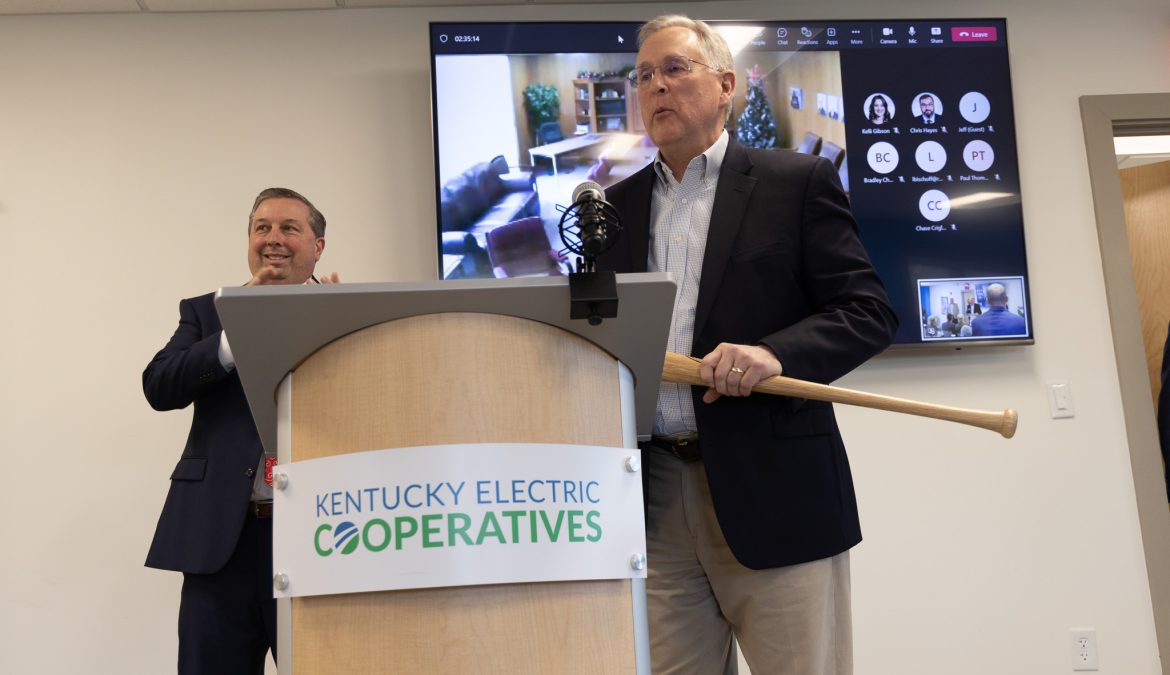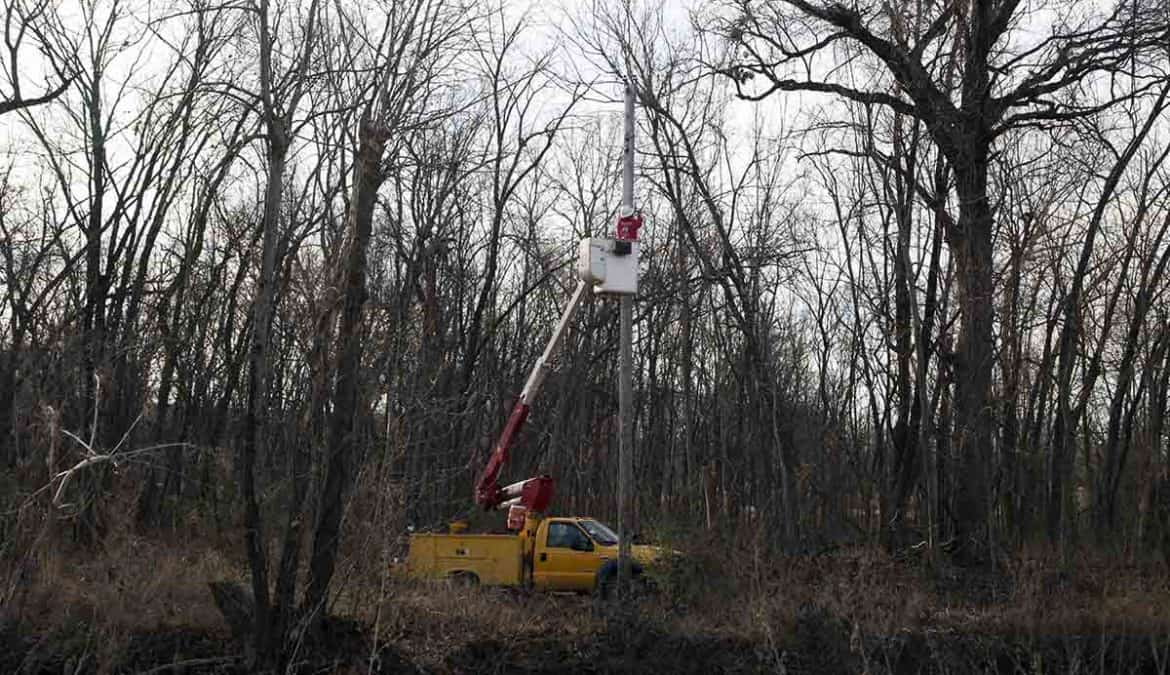The Kentucky Electric Cooperatives Board honored retiring Farmers RECC President Bill Prather at its December meeting on Tuesday in Louisville. Statewide President Chris Perry paid tribute to Prather’s leadership and cooperative values in his 43 years of dedicated service, including 15 years leading Farmers RECC. Prather was gifted a commemorative Louisville Slugger bat.
Month: December 2022
Here Come the Funds: Co-ops Should Get Ready for Flood of Broadband Projects
Unprecedented sums for rural broadband will begin flowing next year from the 2021 infrastructure law, and that means electric cooperatives—even those without plans to enter the internet business—should get ready.
“Expect a deluge of make-ready work requests and requirements from projects launched by the release of these funds, even if your co-op is not deploying broadband,” said Katie Culleton, NRECA legislative affairs director for broadband issues.
The law provides about $65 billion for several rural broadband programs to deliver “internet for all” under set deadlines that have gotten tighter because of delays in the disbursal process. This is increasing the urgency for internet service providers to hit the ground running.
“So many communities have waited so long for high-speed internet access for schools, health care and to lift their economy,” Culleton said. “With so much funding for rural broadband on its way, now is a good time to think about what this means for your co-op and parts of your service territory or adjacent areas that lack service.”
In March, the National Telecommunications and Information Administration plans to announce the winners of its $1 billion Enabling Middle Mile Grants for closing the digital divide.
Also in the spring, the U.S. Department of Agriculture will begin disbursing $1.15 billion for the fourth round of ReConnect.
States and territories in the summer may begin receiving $100 million or more from the $42.5 billion Broadband Equity, Access and Deployment program after NTIA incorporates public challenges to new broadband coverage maps from the Federal Communications Commission.
Culleton said co-ops may want to take certain preliminary actions, including:
- Talking with the major internet providers in the area about their plans.
- Identifying potential resources, both internal and external, that could be utilized to handle a surge in pole attachment applications.
- Conducting a “pole audit” to collect the latest information on the location and condition of poles.
Co-ops also should be mindful of skilled labor shortages and persistent supply chain issues that may delay materials and equipment, she said.
“We don’t want to be blamed for slowing the process down by not completing make-ready work or pole replacements in a reasonable time frame,” Culleton said. “No one wants an internet service provider to point to a co-op as the holdup.”
Cathy Cash is a staff writer for NRECA.


